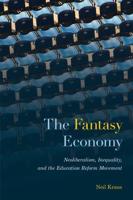Publisher's Synopsis
This book explains when and how interest groups are influential in the European Parliament, which has become one of the most important lobbying venues in the EU. Yet we know little about the many ways in which interest groups and lobbyists influence parliamentary politics. The author offers insights on four key cases of lobbying, based on the analysis of EU documents, lobbying letters, and 150 interviews. She argues that lobbying success depends on a number of factors, most notably the degree of counter-lobbying, issue salience, and committee receptiveness. These factors are brought together in the framework of "Triple-I" - interests, issues, and institutions - to determine the success or failure of lobbying. This book will be of use to students and scholars interested in EU politics and governance, EU decision-making, and interest group politics, along with policy-makers and practitioners.










